Here’s a quick question: How many spoonfuls of high-fructose corn syrup did you eat yesterday?
Oh, you don’t recall slurping down any of the hyper-sweet corn extract? Well, you did—about eight teaspoons’ worth, according to the U.S. Department of Agriculture. In fact, the average American consumed 27 pounds of the stuff last year.
But while 8 teaspoons of artificially manufactured syrup may seem like an awful lot, it’s only a drop in the sugar bucket. The USDA’s most recent figures find that Americans consume, on average, about 32 teaspoons of added sugar every single day. That sugar comes to us in the form of candies, ice cream and other desserts, yes. But the most troubling sugar of all isn’t the added sugar we consume on purpose; it’s the stuff we don’t even know we’re eating.
In recent years, the medical community has begun to coalesce around a powerful new way of looking at added sugar: as perhaps the number one most significant health threat in America. But what exactly is “added sugar,” and why do experts suddenly believe that it’s the ISIS of nutrition?
When they talk about “added sugar,” health experts aren’t talking about the stuff that we consume from eating whole foods. “Added sugars are sugars that are contributed during the processing or preparation of foods and beverages,” says Rachel K. Johnson, PhD, RD, professor of nutrition at The University of Vermont. So lactose, the sugar naturally found in milk and dairy products, and naturally occurring fructose, the sugar that appears in fruit, don’t count. But ingredients that are used in foods to provide added sweetness and calories, from the much-maligned high fructose corn syrup to healthier-sounding ones like agave, date syrup, cane sugar, and honey, are all considered added sugars.
Pro-Sugar Ads From the '60s and '70s

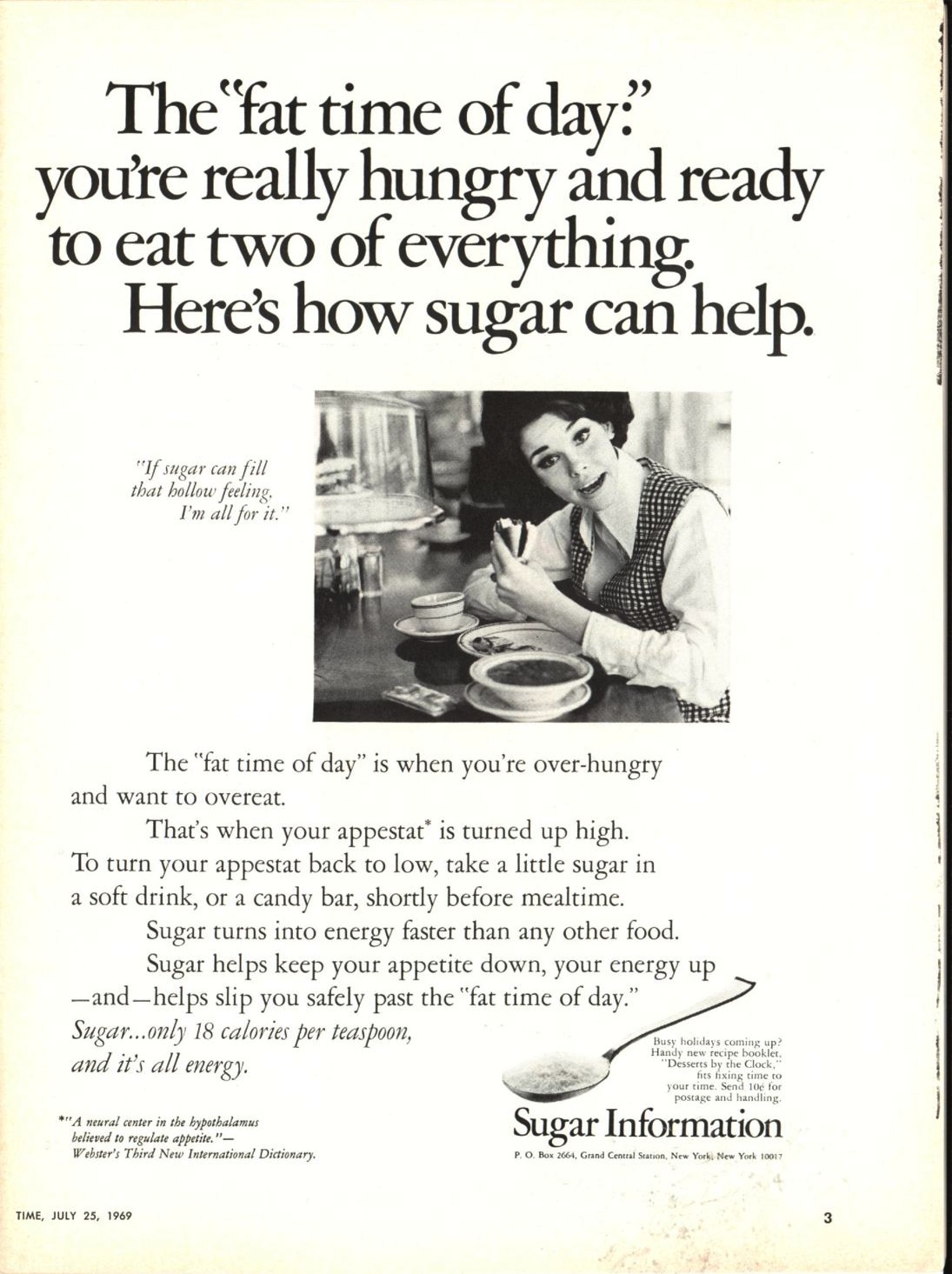
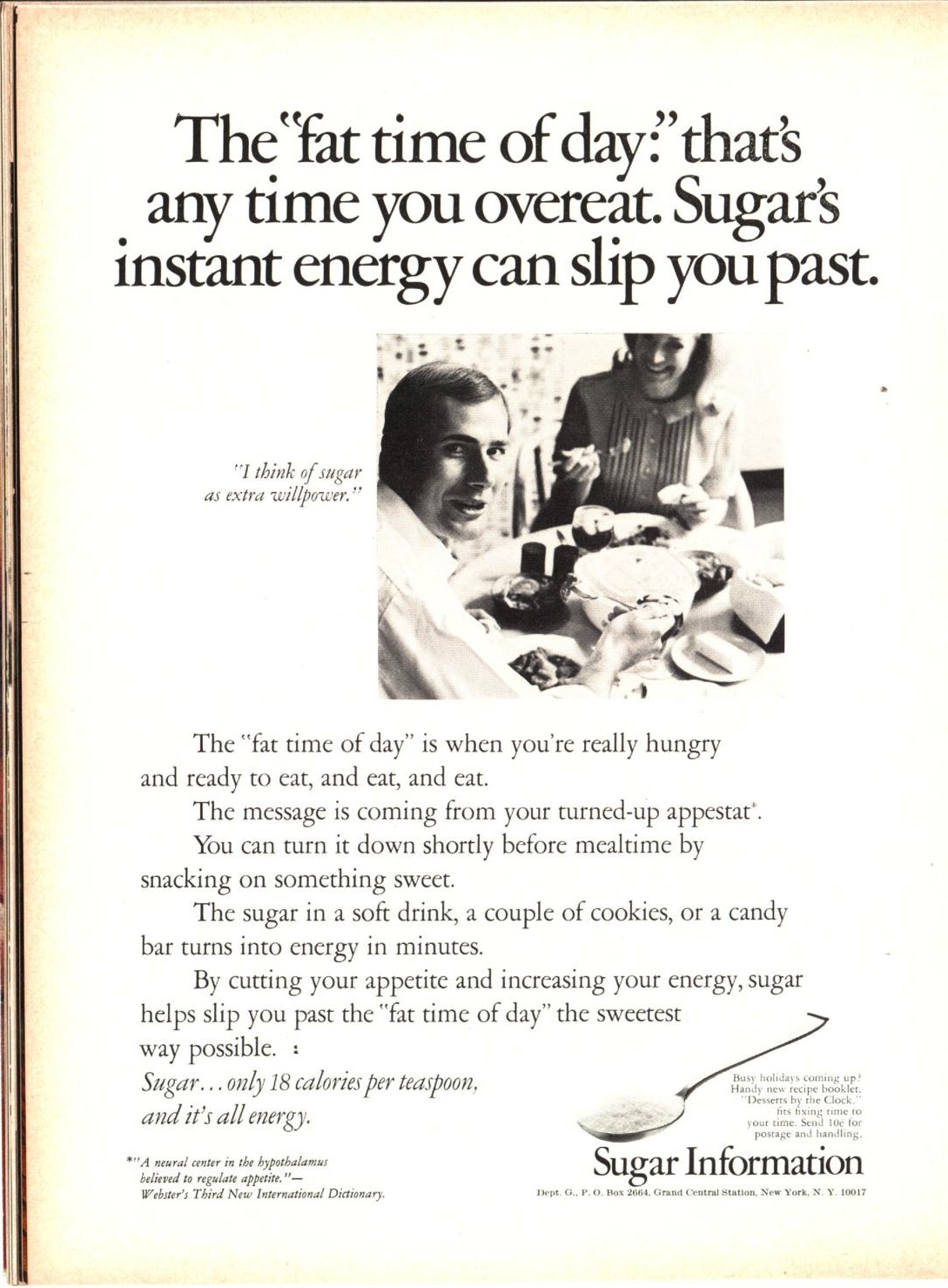
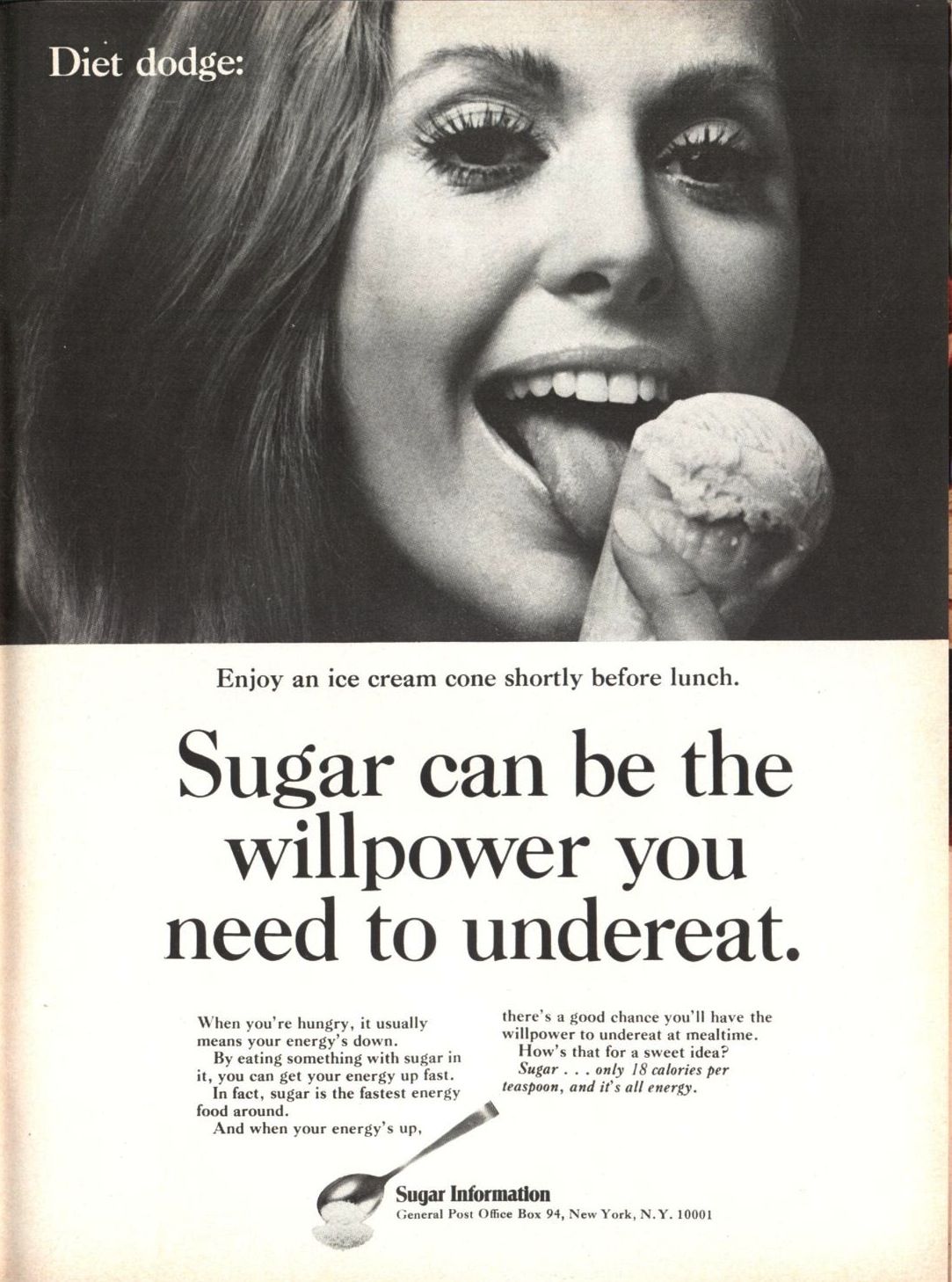


That’s because naturally occurring sugars, like what you find in an apple, come with their own health posse—fiber, which slows the digestion of the sugar and prevents it from spiking insulin response and damaging your liver, two serious side effects of added sugar. “It’s almost impossible to over consume fructose by eating too much fruit,” says Johnson. Consider this: You’d need to eat six cups of strawberries to get the same amount of fructose as in one can of Coke.
Fortunately, giving up added sugar has been shown to have several dramatic and rapid impacts on your health. In a newly released study, children who cut added sugars from their diets for just 9 days showed dramatic improvements in cholesterol and blood sugar levels.
On the flip side, adding sugar to your diet can quickly put your health into a spiral: People who consumed beverages containing high fructose corn syrup for two weeks significantly increased their levels of triglycerides and LDL cholesterol (the “bad” cholesterols), plus two proteins associated with elevated cholesterols and another compound, uric acid, that’s associated with diabetes and gout. So found a 2015 study in the American Journal of Clinical Nutrition.
In fact, in a 2014 editorial in the journal JAMA Internal Medicine, the authors made a bold statement: “Too much sugar does not just make us fat; it can also make us sick.”
The editors of Eat This, Not That! took a look at the most recent research and discovered just how much harm added sugars are doing to us:
QUIZ: Should You Eat This or That?




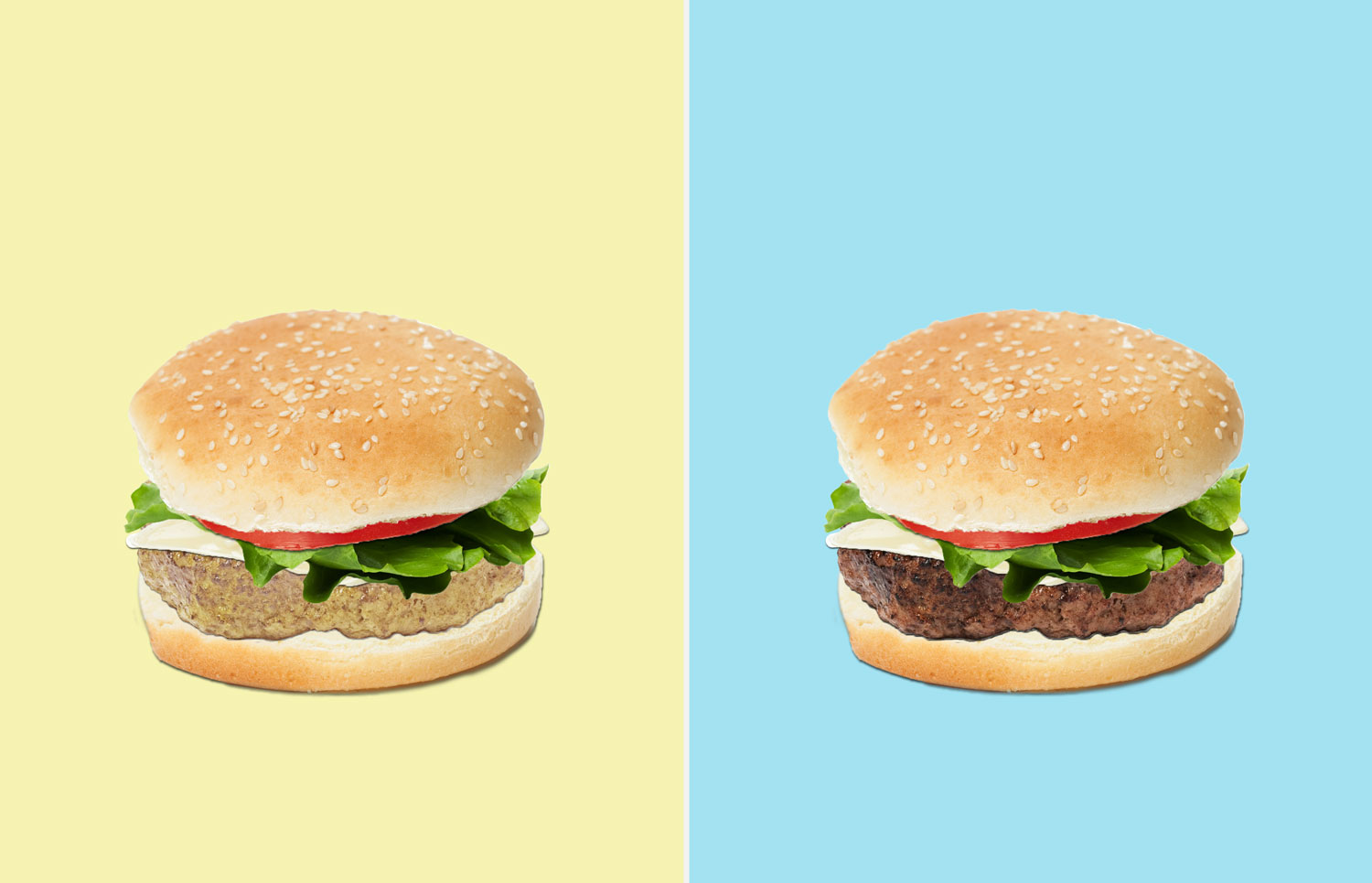

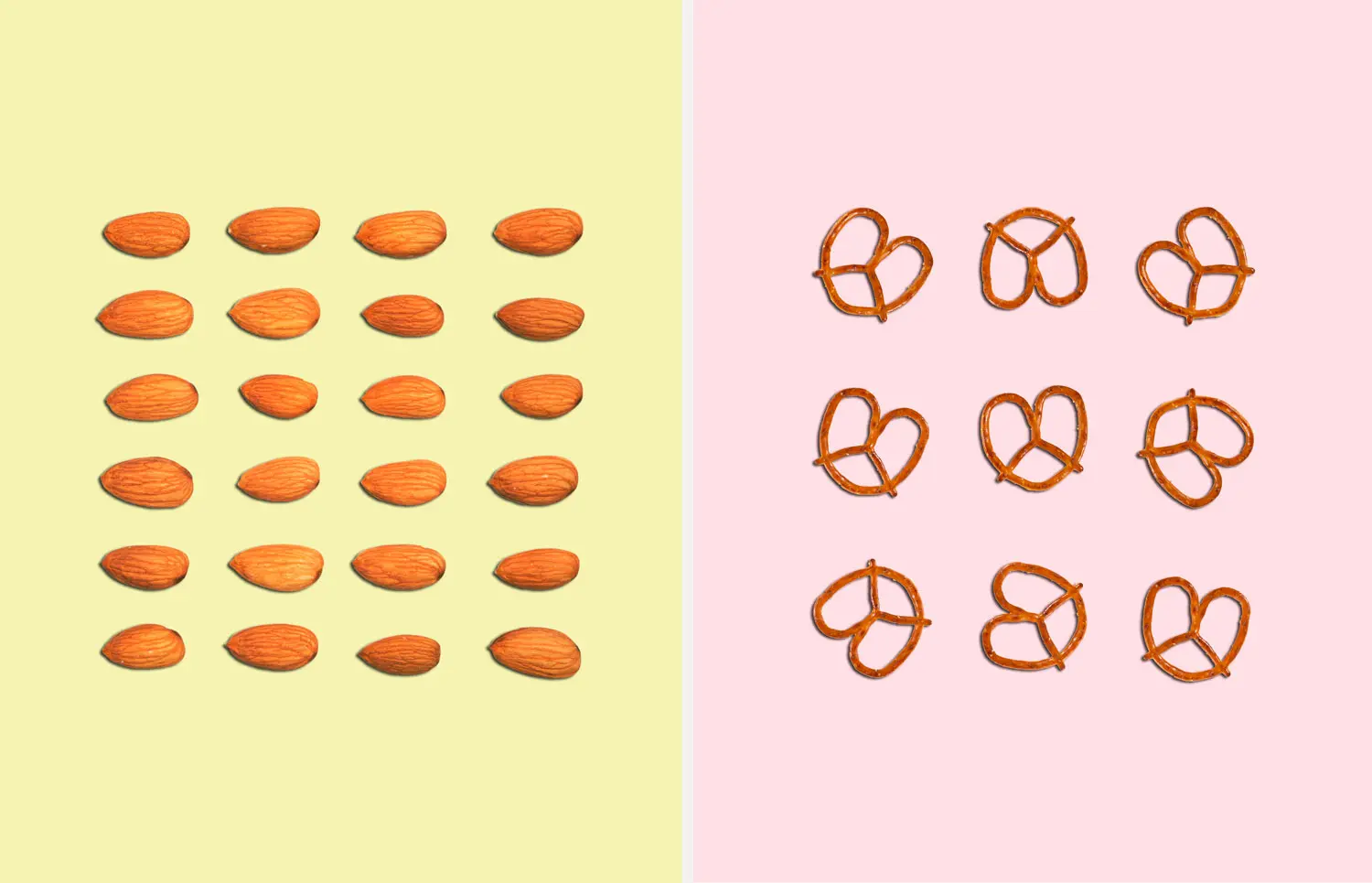
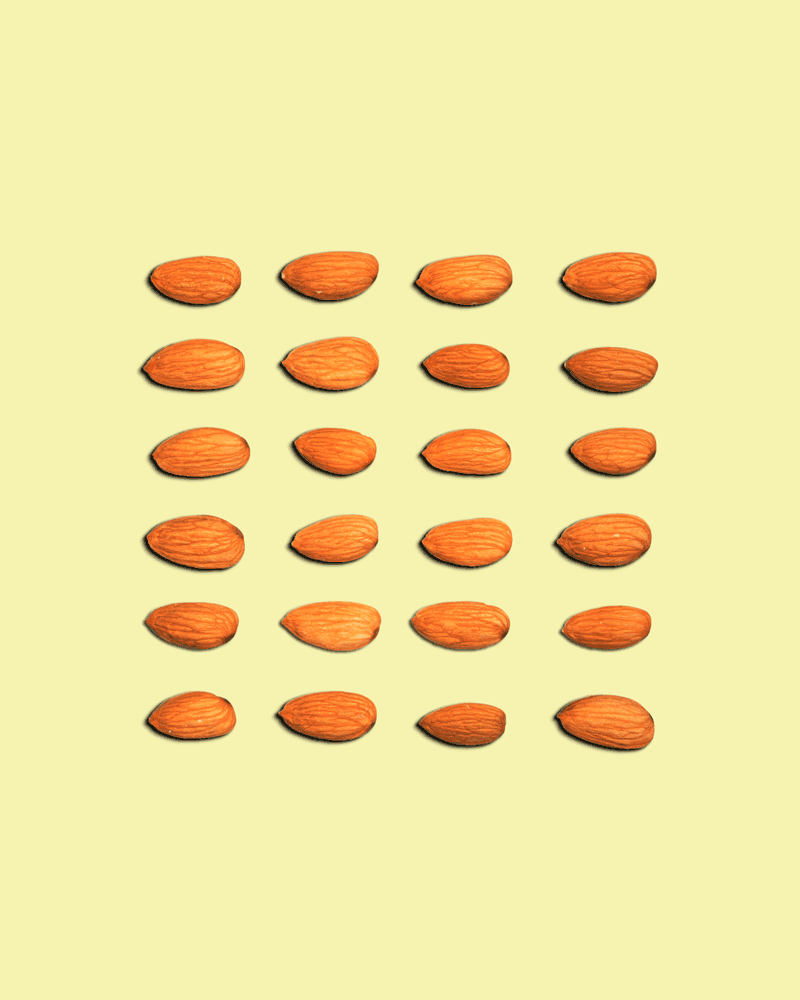


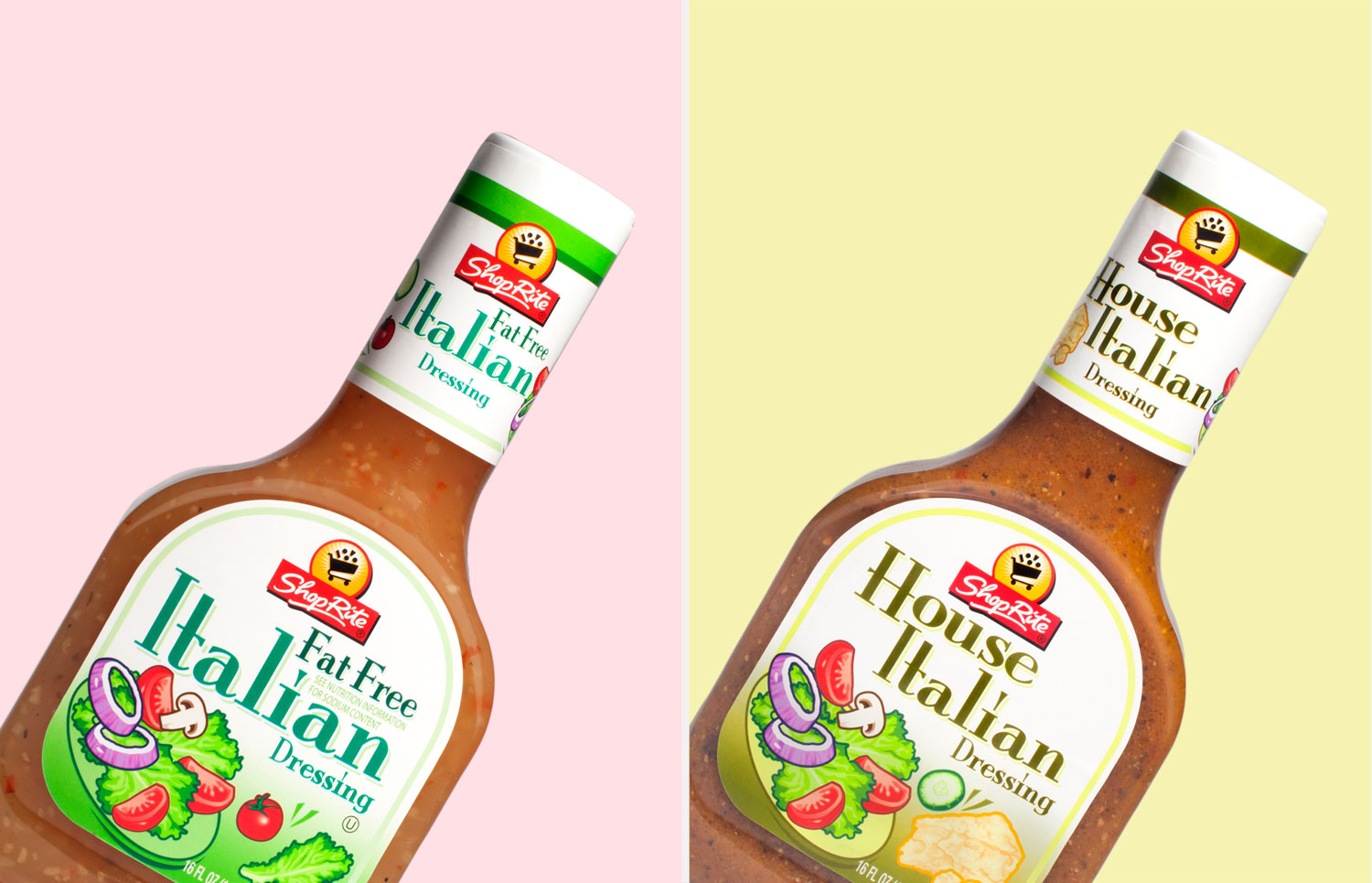
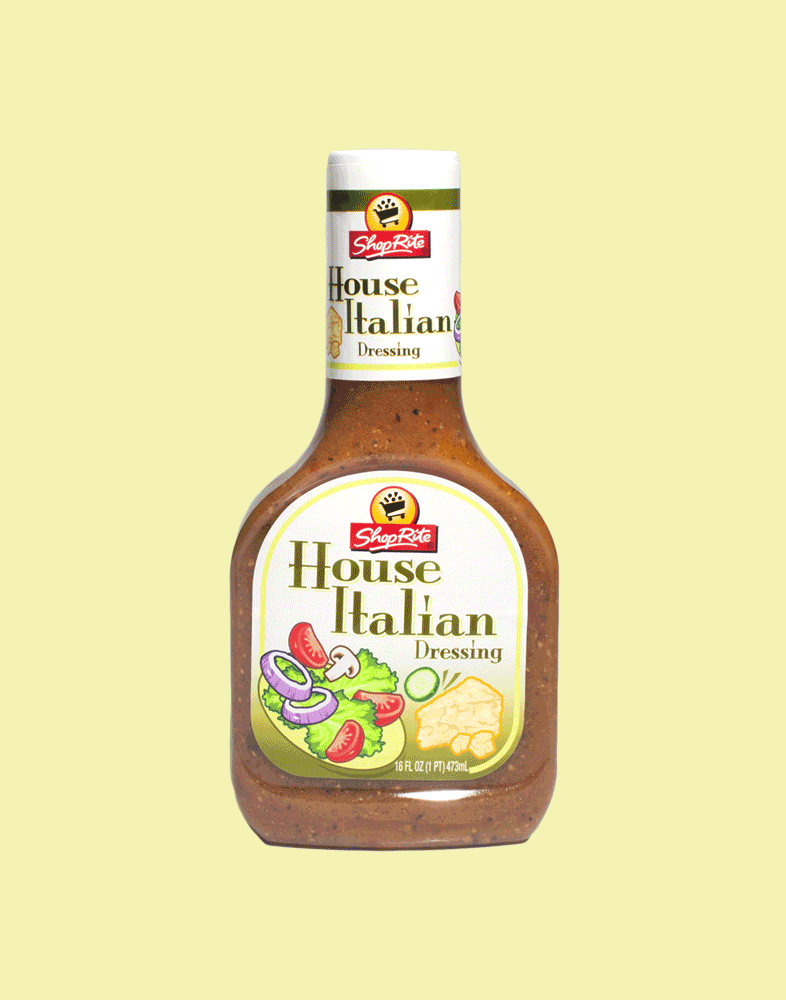




Added sugar makes eating healthy almost impossible
The more added sugar that sneaks its way into your diet, the less healthy food you’ll eat the rest of the day. That’s the finding of a 2015 article in Nutrition Review, which looked at dozens of studies conducted between 1972 and 2012. The researchers found that a higher intake of added sugar was associated with poorer diet and a lower intake of micronutrients.
That’s in part because of how sugary foods retrain our taste buds and mess with our bodily systems. When even tomato sauce is laced with sweetener, we then need greater and greater doses of sugar in order for the flavor to register. That leads us to seek out candies and baked goods at the expense of real food.
But it’s not just a matter of taste. A sugar rush creates an overflow of insulin into the system to try to manage the toxic substance. Because it can create an overreaction within the body—too much insulin pulling too much sugar out of the bloodstream—it can lead to crash that sends us seeking another immediate sugar rush, the kind that no whole food can satisfy.
The most powerful effects, however, aren’t on our bodies. They’re on our brains. In one study, researchers measured the levels of oxytocin, a feel-good hormone that helps us feel satiated, in the brains of rats. When rats that ate a low-sugar diet were given a meal high in sugar, their oxytocin levels didn’t change. But when they were given the high-sugar diet regularly, their brains began to show lower levels of oxytocin activity. In other words, the more we’re bombarded with added sugars, the more chronically unsatisfied we feel, and the more we need to eat. An editorial in JAMA Internal Medicine asked, “Why are we consuming so much sugar despite knowing too much can harm us?” The answer: “The high prevalence of added-sugar consumption…is very likely influenced by and a result of addictive behaviors incited by reward system activation after overeating highly palatable foods.”
Added sugar causes your body to store fat around your belly
Within 24 hours of eating fructose, your body is flooded with elevated levels of triglycerides. Does that sound bad? It is.
Triglycerides are the fatty deposits in your blood. Your liver makes them, because they’re essential for building and repairing the tissues in your body.
But when it’s hit with high doses of fructose, the liver responds by pumping out more triglycerides; that’s a signal to your body that it’s time to store some abdominal fat. In one study, researchers fed subjects beverages sweetened with either glucose or fructose. Both gained the same amount of weight over the next 8 weeks, but the fructose group gained its weight primarily as belly fat, thanks to the way this type of sugar is processed in the liver.
What’s unique to fructose is that it seems to be a universal obesogen—in other words, every creature that eats it gains weight. Princeton researchers recently found that high-fructose corn syrup seemed to have a unique impact on weight in their animal studies.
“When rats are drinking high-fructose corn syrup at levels well below those in soda pop, they’re becoming obese—every single one, across the board,” psychology professor Bart Hoebel, a specialist in appetite and sugar addiction, said in a report from the university.
“Even when rats are fed a high-fat diet, you don’t see this; they don’t all gain weight.” Fructose is the freak show of fat.
Added sugar makes you skip going to the gym
There are a lot of ways that added sugar can make you gain weight, but the most bizarre may be the way it reduces actual physical activity. In one study at the University of Illinois, mice that were fed a diet that mimicked the standard American diet–i.e., one that was about 18 percent added sugars—gained more body fat even though they weren’t fed more calories. One of the reasons was that the sugar-addled mice traveled about 20 percent less in their little cages than mice that weren’t fed the sugary diet. They just naturally…slowed…down.
Added sugar is the number one factor in your risk of dying from diabetes
The link between increased sugar and diabetes risk is right up there with “smoking causes lung cancer” on the list of immutable medical truths— despite what soda manufacturers are trying to tell us. (You’ll read more about sugar-based hocus-pocus in the next chapter.) But researchers at the Mayo Clinic have come right out and said that added fructose—either as a constituent of table sugar or as the main component of high-fructose corn syrup—may be the number one cause of diabetes, and that cutting sugar alone could translate into a reduced number of diabetes deaths the world over.
Added sugar affects your brain
“Reduce fructose in your diet if you want to protect your brain,” announced Fernando Gomez-Pinilla, professor at the University of California Los Angeles.
He and his team tested how well rats recovering from brain injury learned new ways to get through a maze. They found that animals that drank HFCS took 30 percent more time to find the exit. “Our findings suggest that fructose disrupts plasticity—the creation of fresh pathways between brain cells that occurs when we learn or experience something new,” he says.
In an earlier study, researchers found that a combination of sugar and fat could actually change one’s brain chemistry. The brains of animals on a high-fat, high-sugar diet had decreased levels of BDNF, a compound that helps brain cells communicate with one another, build memories, and learn new things; decreased levels of BDNF have been linked to both Alzheimer’s and depression.
One of the recent mysteries of science is why depression, diabetes and dementia seem to cluster in epidemiological studies, and why having one of these health issues seems to increase your risk for the others. The answer: In a study in the journal Diabetologia, researchers found that when blood glucose levels are elevated, BDNF levels drop. That means that the simple act of eating sugar makes you instantly dumber; the more you do it, the greater your risk of diabetes, and the greater your risk of depression and dementia as well. In a 2015 study of post-menopausal women, higher levels of added sugars and refined carbs were associated with an increased likelihood of depression, while higher consumption of fiber, dairy, fruit and vegetables was associated with a lower risk.
And, in a study of nearly 1,000 seniors (median age: 79.5), researchers found that eating a diet high in simple carbs significantly increased the risk of developing dementia. All of the subjects were cognitively normal at the beginning of the study, and about 200 developed signs of dementia over the next 3.7 years. The risk of mental decline was higher in those who ate high-carb diets, and lower in those whose diets were higher in fat and/or protein.
Sugar doubles your risk of dying from heart disease
People who get 25 percent of more of their calories from added sugar are more than twice as likely to die from heart disease as those who eat less than 10 percent, according to a study in the Journal of the American Medical Association.
One out of ten of us fall into that category.
Now, if you’re an average American, your daily sugar consumption is about 17 percent of calories, according to the study.
But that’s hardly a laurel to rest on. People who ate between 17 and 21 percent of their calories from added sugar had a 38 percent higher risk of dying from heart disease, compared with people who consumed 8 percent or less of their calories from added sugar.
At first, the researchers figured that since those who ingest more sugar have poorer diets, that might be a main cause. But even after making adjustments for the quality of one’s diet, the link between sweets and cardiovascular risk remained the same.
The study found that the major sources of added sugar in the American diet were:
And sodas and other sweet drinks are a major red flag: The researchers found that a higher consumption of sugar-sweetened beverages was directly tied to an increased risk of dying from heart disease. The impact is so great that you don’t need to be meandering through middle age to see the impact: Even teenagers who consume food and beverages high in added sugars show evidence of risk factors for heart disease and diabetes in their blood, according to a second study in The Journal of Nutrition.
Added sugar raises your blood pressure
In fact, sugar may be worse for your blood pressure than salt, according to a paper published in the journal Open Heart.
Just a few weeks on a high-sucrose diet can increase both systolic and diastolic blood pressure. Another study found that for every sugar-sweetened beverage, risk of developing hypertension increased 8 percent. Too much sugar leads to higher insulin levels, which in turn activate the sympathetic nervous system and lead to increased blood pressure, according to James J. DiNicolantonio, Pharm.D., cardiovascular research scientist at Saint Luke’s Mid America Heart Institute in Kansas City, Missouri. “It may also cause sodium to accumulate within the cell, causing calcium to build up within the cell, leading to vasoconstriction and hypertension,” he says.
Sugar causes your skin to sag
Your skin has its own support system in the form of collagen and elastin, two compounds that keep your skin tight and pump. But when elevated levels of glucose and fructose enter the body, they link to the amino acids present in the collagen and elastin, producing advanced glycation end products, or “AGEs.” That damages these two critical compounds and makes it hard for the body to repair them. This process is accelerated in the skin when sugar is elevated, and further stimulated by ultraviolet light, according to a study in Clinical Dermatology.
In other words, eating lots of sugar poolside is the worst thing you can do for your skin.
This article originally appeared on Eat This, Not That!
More from Eat This, Not That!
More Must-Reads from TIME
- Why Biden Dropped Out
- Ukraine’s Plan to Survive Trump
- The Rise of a New Kind of Parenting Guru
- The Chaos and Commotion of the RNC in Photos
- Why We All Have a Stake in Twisters’ Success
- 8 Eating Habits That Actually Improve Your Sleep
- Welcome to the Noah Lyles Olympics
- Get Our Paris Olympics Newsletter in Your Inbox
Contact us at letters@time.com